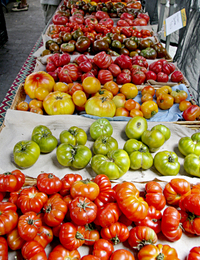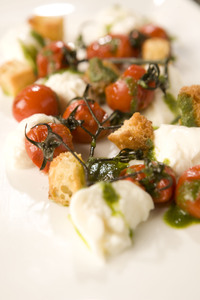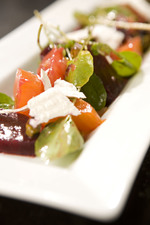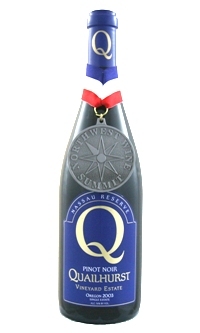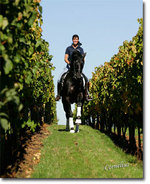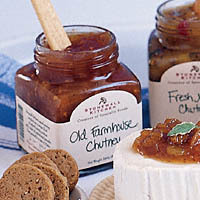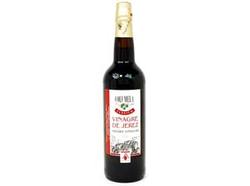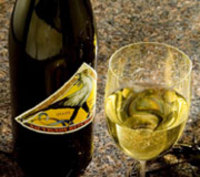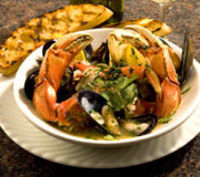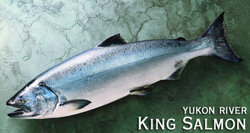 When I was in New York recently for the James Beard Awards (presented to the country’s top chefs and restaurateurs), the chitchat at one animated cocktail party centered on the coming Yukon River king salmon season.
When I was in New York recently for the James Beard Awards (presented to the country’s top chefs and restaurateurs), the chitchat at one animated cocktail party centered on the coming Yukon River king salmon season.
“It’s the best fish in the sea, eating-wise,” said Jon Rowley, one of the most respected seafood consultants in the world and the man widely considered to have introduced Copper River salmon to the masses in the 1980s.
Michael Bauer, executive food editor of the San Francisco Chronicle nodded in agreement, while other foodie professionals within earshot of the conversation joined in with their “Yeah, we can’t wait for the season to open.”
They’re going to be waiting a long time. Like about 365 days.
This week, the fishery managers in the Northwest declared there would be no commercial fishing of Yukon River salmon this year. That means none in your local fish market; none on restaurant menus.
The fishery managers also ordered drastic cuts in the number of fish that can be taken from the water by the native Yup’ik fishing families, who rely on the fish for food and to sell in order to make money for other living expenses.
In the last year or so, Yukon River kings have become the “new” Copper River salmon, the most sought-after catch-of-the-day. They are prized for their unusually high oil content. Rowley says the fish is so rich, fatty and flavorful it practically melts in your mouth.
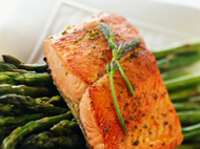 The fish build up this fat, along with the highest level of omega-3 fatty acids (linked to healthy hearts and the control of arthritis and asthma) of any salmon in the world, by swimming some 2,000 miles up the imposing Yukon RIver to spawn.
The fish build up this fat, along with the highest level of omega-3 fatty acids (linked to healthy hearts and the control of arthritis and asthma) of any salmon in the world, by swimming some 2,000 miles up the imposing Yukon RIver to spawn.
But this year, according to news reports, a significantly smaller number of king salmon have returned to the Yukon River, spurring the fishing embargo.
Rowley has suggested that the billion-dollar Bering Sea pollock fishery is at fault. According to an account on Gourmet.com: “More than 100 giant trawlers drag the waters off the Yukon River for pollock, but their nets intercept migrating kings. The salmon, so valuable to the Yup’iks, are illegal for the trawlers to sell, so they get dumped back into the sea as garbage—dead.”
There will still be plenty of good Northwest salmon in the marketplace this summer, but it will be other species and not the gold standard Yukon River. Cynthia Nims, a Seattle-based food writer and cookbook author, wrote this week in her blog that there’s still a slim chance that some Yukon River salmon might swim into the marketplace.
"There’s still a chance some of the salmon make their way into retail and restaurant channels yet," she reports. "King counts are being reevaluated every day and it’s possible they’re just running late this year."
I don’t know about you, but just learning these ins and outs of the king salmon fishery have made me hungry for whatever type of wild salmon that’s out there. (There's still some Copper River salmon in the marketplace, but it won't be around for much longer. I bought a delicious piece this week for $30 a pound.)
So I’m heading out to to shop and whip up my favorite salmon creation: A simply grilled filet, served over a heap of roasted, diced red beets that are warmed in a pan with homemade vinaigrette.
I also love Wolfgang Puck’s Grilled Salmon with Black Pepper and Ginger that should be served on a mountain of garlicky mashed potatoes.
4 pieces king salmon, about 6 ounces each
3 tablespoons chopped fresh ginger
3 tablespoons chopped black pepper
1 shallot, chopped
1 clove garlic, minced
6 tablespoons unsalted butter
1 tomato, skinned, seeded and chopped
½ bottle Cabernet Sauvignon
2 tablespoons balsamic vinegar
1 cup chicken stock
Heat 2 teaspoons butter in a saute pan until foamy. Add shallot, garlic and tomato and sauté for several minutes, or until shallot is translucent.
Add wine and vinegar and continue cooking over medium heat until reduced by half. Add chicken stock and reduce gain by half. Finish sauce by swirling in pieces of softened butter until desired consistency is achieved. Season to taste with salt and freshly ground pepper. Keep warm.
Mix together ginger and pepper. Season salmon with salt and spread with ginger-pepper mixture. Sprinkle with olive oil and grill or saute salmon until medium rare.
Serve on a warmed plate, atop garlicky mashed potatoes.
